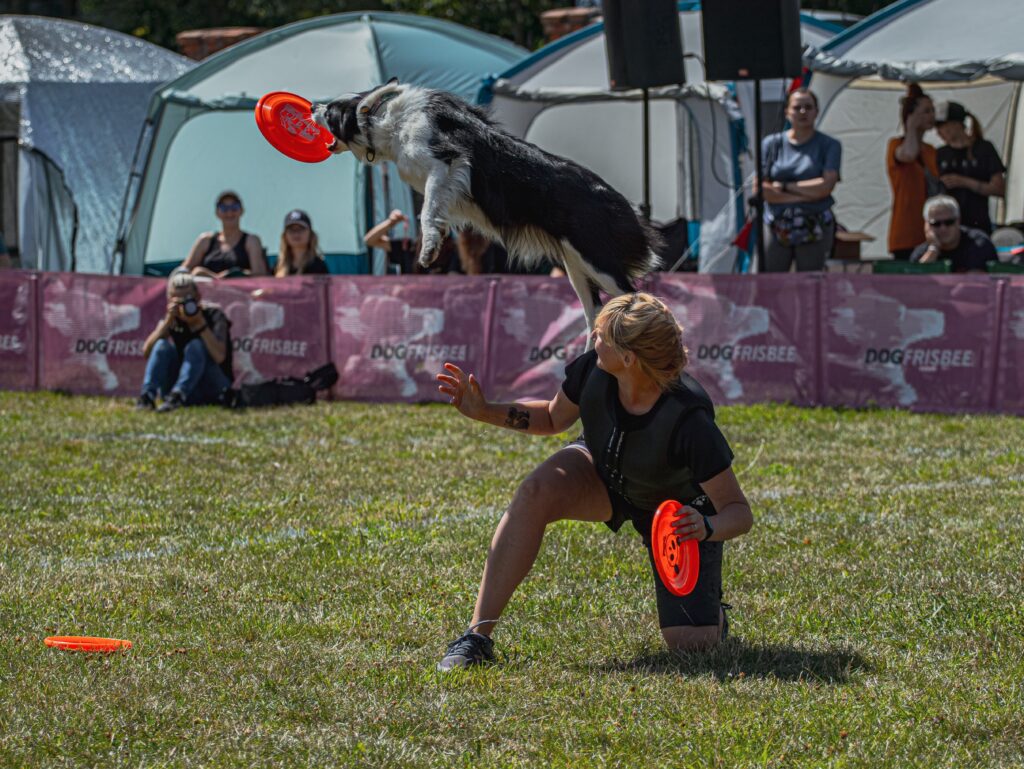
The Importance of Monitoring Puppy Joint Health
Firstly, puppies are undeniably adorable. Secondly, they can be a handful, especially when it comes to their health. Consequently, monitoring your puppy joint health is crucial. This not only keeps those adorable, floppy ears at bay but also ensures your furry friend can happily jump and play without any issues.
In this comprehensive guide, we will cover various topics related to puppy joint health. From recognizing common joint issues to providing proper nutrition, engaging in joint-strengthening exercises, and exploring preventative measures and treatments, we’ve got you covered. So, let’s dive in and keep those puppies hopping and wagging their tails for years to come!
Early Detection and Prevention
First and foremost, monitoring your puppy’s joint health allows for early detection of any issues. As a result, you can take swift action to address the problem. By keeping an eye on your furry friend’s movements and behavior, you can identify:
- Changes in mobility or activity levels
- Signs of discomfort or pain
- Swelling or inflammation around the joints
- Limping or favoring one leg
In conclusion, spotting these symptoms early on may prevent more severe joint issues from developing.
Ensuring Proper Growth and Development
Additionally, monitoring your puppy’s joint health is crucial for their proper growth and development. In particular, paying attention to their joint health can help:
- Prevent imbalances in their skeletal structure
- Reduce the risk of developmental issues
- Ensure they grow into strong, healthy adults
Ultimately, keeping a close eye on your puppy’s joints will enable them to live a more active, pain-free life.
Establishing a Baseline for Future Health
Moreover, monitoring your puppy’s joint health helps establish a baseline for their future wellbeing. This process includes:
- Understanding their normal range of motion
- Identifying any breed-specific joint issues
- Recognizing their typical activity levels
In essence, having a clear understanding of your puppy’s joint health will allow you to spot deviations and address them quickly.
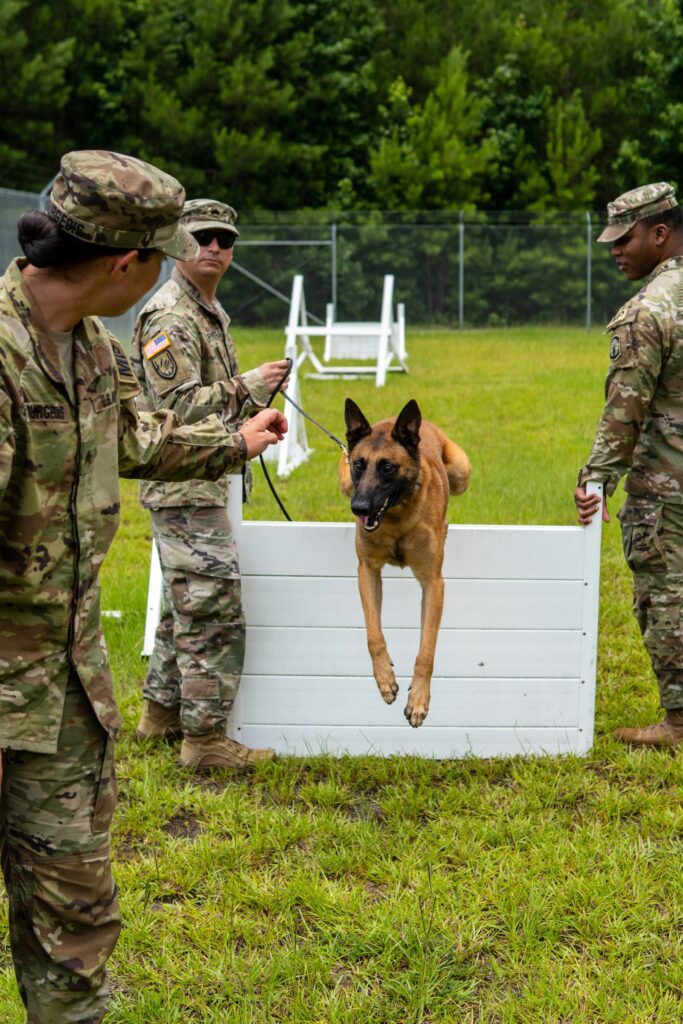
Enhancing Your Bond with Your Puppy
Furthermore, observing your puppy’s joint health can strengthen your bond with them. This practice requires:
- Regularly interacting with and observing your puppy
- Gently examining their joints
- Noticing changes in behavior or energy levels
Additionally, monitoring your puppy’s joint health can promote lifelong mobility and comfort. Taking care of their joints from an early age can lead to:
- Reduced chances of developing arthritis or other joint disorders
- Better overall quality of life
- Enhanced ability to participate in activities they enjoy
In short, keeping tabs on your puppy’s joint health can ensure they remain comfortable and active throughout their life.
Educating Yourself on Proper Puppy Care
Lastly, focusing on your puppy’s joint health can help educate you on proper puppy care. By learning about joint health, you’ll also gain knowledge on:
- Appropriate exercise routines for your puppy
- The best diet for healthy joint development
- How to recognize the signs of joint issues
Consequently, understanding puppy joint health will make you a more responsible and informed pet owner.
Collaboration with Your Veterinarian
Monitoring your puppy’s joint health also encourages a strong partnership with your veterinarian. This collaboration involves:
- Regular vet check-ups to assess joint health
- Seeking professional advice on exercise and nutrition
- Following a recommended treatment plan if issues arise
Ultimately, working closely with your veterinarian will ensure your puppy receives the best care possible for their joint health.
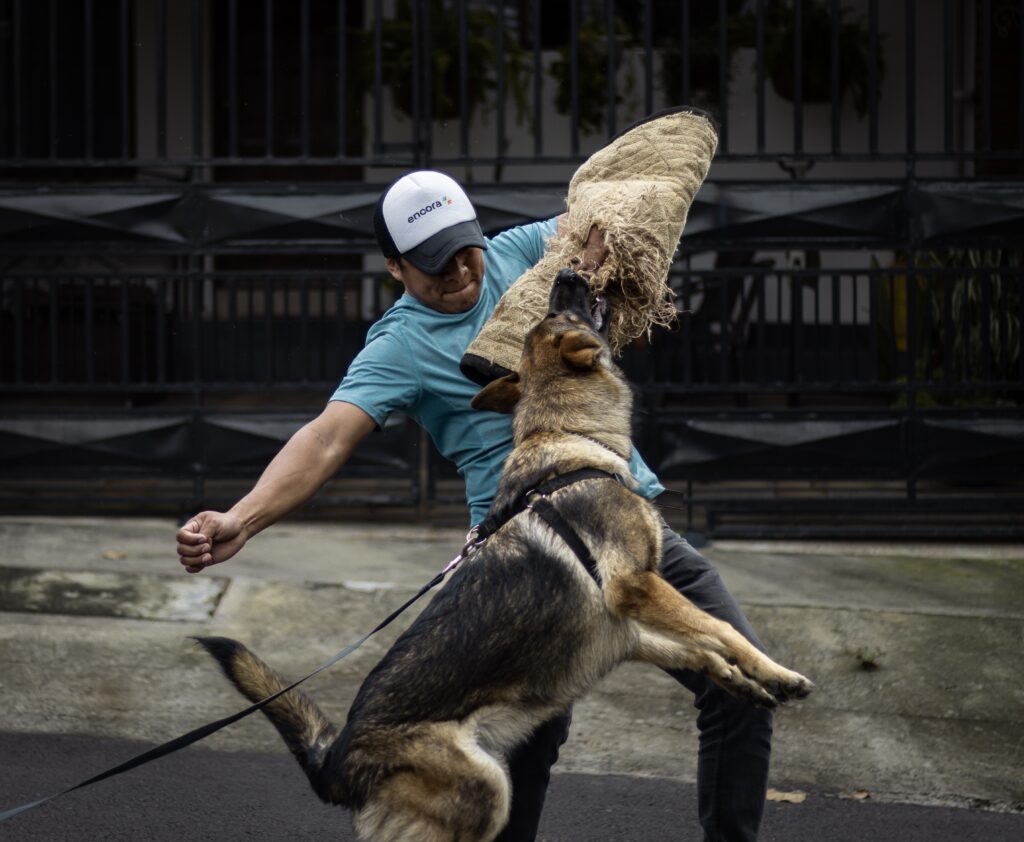
Common Joint Issues in Puppies and How to Identify Them
Identifying Common Puppy Joint Issues
When it comes to puppy joint health, being aware of common issues is essential. By understanding these problems, you can take proactive steps to address them. Some common joint issues in puppies include:
- Hip dysplasia: A genetic condition where the hip joint doesn’t develop properly, leading to arthritis and pain.
- Elbow dysplasia: An abnormal development of the elbow joint that can cause lameness and discomfort.
- Patellar luxation: A condition where the kneecap dislocates or moves out of its normal position, causing pain and instability.
- Osteochondritis Dissecans (OCD): A joint disorder in which the cartilage doesn’t develop correctly, leading to joint inflammation and pain.
Knowing these conditions can help you keep a watchful eye on your puppy’s joint health and seek veterinary care if needed.
Recognizing Signs of Joint Issues in Puppies
Early detection of joint issues is crucial for effective treatment and management. To identify potential problems, pay attention to the following signs:
- Limping or lameness: An irregular gait or reluctance to put weight on a limb may indicate joint discomfort.
- Swelling: Inflamed or swollen joints can be a sign of injury or underlying joint conditions.
- Stiffness: Difficulty moving or getting up, especially after rest, can signal joint issues.
- Reluctance to exercise: If your puppy avoids physical activity or shows signs of pain during play, it may indicate joint problems.
By observing your puppy closely, you can spot potential joint issues early and seek veterinary help as needed.
Regular Veterinary Check-ups for Puppy Joint Health
Scheduling regular veterinary check-ups is a crucial aspect of maintaining your puppy’s joint health. During these visits, your veterinarian can:
- Examine your puppy’s joints for any abnormalities or signs of discomfort.
- Discuss your puppy’s growth and development, addressing any concerns regarding joint health.
- Recommend appropriate preventive measures, such as supplements or weight management plans.
- Monitor your puppy’s progress and adjust treatment plans as needed, ensuring optimal joint health.
Regular vet visits play a significant role in catching joint issues early and promoting overall health for your puppy.

Genetic Screening for Joint Conditions
For breeds prone to joint issues, genetic screening can be an invaluable tool. By testing your puppy for genetic markers associated with specific joint conditions, you can:
- Identify potential joint problems before they become symptomatic.
- Make informed decisions about your puppy’s care, such as choosing appropriate exercises or treatments.
- Discuss your puppy’s risks with your veterinarian and develop a customized plan for joint health.
- Ensure the responsible breeding of dogs by avoiding passing on hereditary joint conditions.
Genetic screening helps both pet owners and breeders contribute to the overall health of future generations of dogs.
Seeking Prompt Veterinary Care for Joint Issues
If you suspect your puppy may have a joint issue, seeking prompt veterinary care is essential. Timely intervention can:
- Prevent further damage to your puppy’s joints, thus maintaining mobility and quality of life.
- Provide accurate diagnosis and appropriate treatment plans tailored to your puppy’s specific condition.
- Allow for early intervention, increasing the likelihood of successful treatment outcomes.
- Minimize the risk of long-term complications, such as chronic pain or mobility limitations.
Acting quickly when you notice potential joint problems is key to ensuring your puppy’s comfort and well-being.
Educating Yourself About Puppy Joint Health
As a responsible pet owner, educating yourself about puppy joint health is crucial. Understanding joint issues can help you:
- Recognize early signs of joint problems and seek timely veterinary care.
- Make informed decisions about your puppy’s diet, exercise, and preventative care.
- Effectively communicate with your veterinarian about your puppy’s joint health concerns.
- Stay updated on the latest advancements in joint health treatments and care.
Being well-informed about joint health enables you to be a proactive advocate for your puppy’s well-being.
In conclusion, identifying common joint issues in puppies is essential for maintaining their overall health and happiness. By understanding the signs and symptoms of these conditions, seeking prompt veterinary care, and taking preventive measures, you can help ensure that your puppy enjoys a pain-free and active life. Remember, the key to optimal joint health for your puppy is a combination of awareness, prevention, and timely intervention.
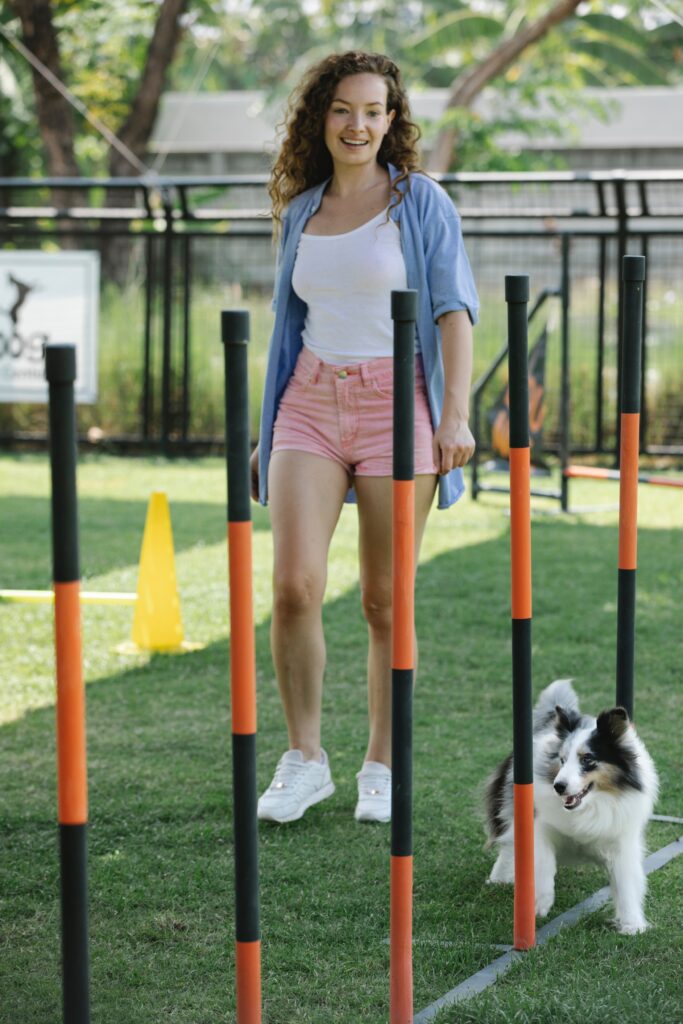
Nutritional Requirements for Optimal Puppy Joint Health
The Role of Nutrition in Supporting Puppy Joint Health
Proper nutrition plays a critical role in maintaining and promoting optimal joint health in puppies. A balanced diet ensures that:
- Your puppy receives essential nutrients for growth and development.
- Joints remain strong and well-lubricated throughout their life.
- The risk of joint issues is minimized by maintaining a healthy weight.
- Immune system functions optimally, helping to prevent inflammatory conditions.
Now, let’s delve into the specific nutritional requirements for optimal puppy joint health.
Essential Nutrients for Puppy Joint Health
There are several nutrients that are vital for supporting your puppy’s joint health. These include:
- Glucosamine and chondroitin: Naturally occurring substances that support cartilage health and joint lubrication.
- Omega-3 fatty acids: Help reduce inflammation and promote healthy joint function.
- Calcium and phosphorus: Vital for strong bones and joint development.
- Vitamins C and E: Antioxidants that protect joint tissues from damage caused by free radicals.
By providing these essential nutrients, you can help support your puppy’s joint health and overall well-being.
High-Quality Protein Sources
In addition to the nutrients mentioned above, it’s important to provide your puppy with high-quality protein sources. These can include:
- Chicken
- Turkey
- Fish
- Beef
- Lamb
High-quality protein sources support muscle development and maintenance, which in turn helps to stabilize and protect your puppy’s joints.
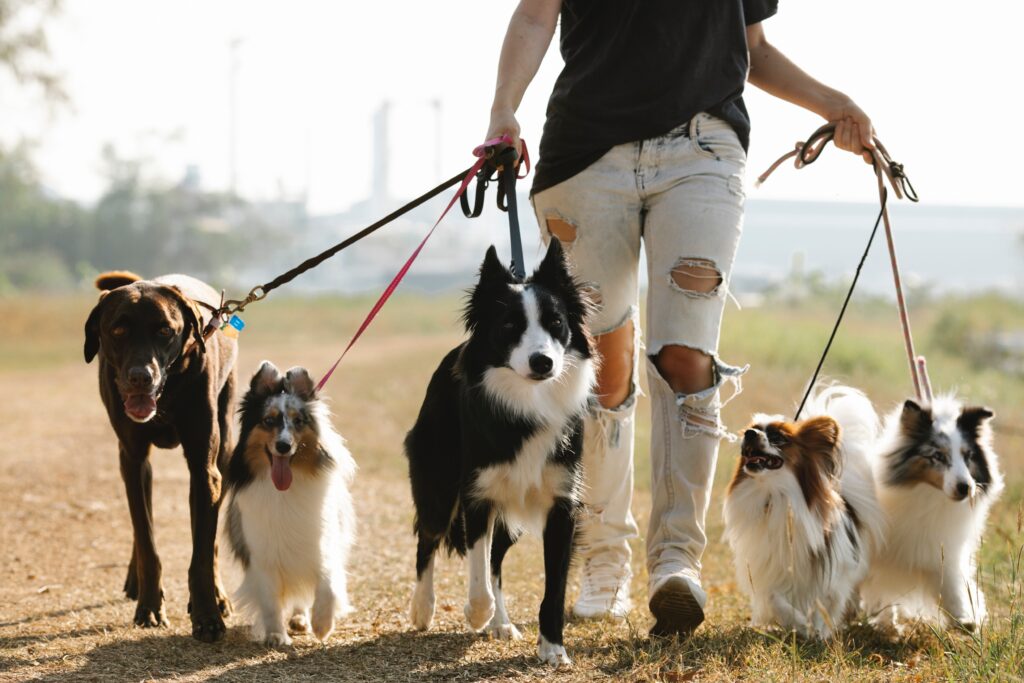
Balancing Calories to Maintain a Healthy Weight
It’s essential to monitor your puppy’s calorie intake to ensure they maintain a healthy weight. Overfeeding can lead to obesity, which puts excess stress on joints and increases the risk of joint issues. Here are some tips for balancing calories:
- Follow the feeding guidelines on your puppy’s food package, adjusting as necessary based on their activity level.
- Monitor your puppy’s weight regularly and adjust portions if needed.
- Provide healthy treats and avoid giving table scraps, as they can contribute to weight gain.
By managing your puppy’s calorie intake, you can minimize the risk of joint problems associated with obesity.
Choosing the Right Puppy Food for Joint Health
Selecting the appropriate puppy food is crucial for supporting joint health. Consider the following factors:
- Opt for a high-quality, balanced diet specifically formulated for puppies.
- Look for a food that contains the essential nutrients mentioned earlier, such as glucosamine, chondroitin, omega-3 fatty acids, and antioxidants.
- Consult your veterinarian for recommendations based on your puppy’s specific needs and breed.
Feeding your puppy the right food can make a significant difference in their joint health and overall well-being.
Supplements for Puppy Joint Health
In some cases, your veterinarian may recommend supplements to support your puppy’s joint health. These can include:
- Joint supplements containing glucosamine, chondroitin, and MSM.
- Omega-3 fatty acid supplements, such as fish oil.
- Vitamin and mineral supplements, if your puppy’s diet is lacking in specific nutrients.
Always consult your veterinarian before starting any supplement regimen for your puppy.
The Importance of Regular Veterinary Check-ups
Regular veterinary check-ups are essential for monitoring your puppy’s joint health and overall well-being. These visits can help:
- Identify potential joint issues early on, allowing for prompt treatment.
- Ensure your puppy is receiving the proper nutrition for their specific needs.
- Provide guidance on maintaining a healthy weight and supporting joint health through exercise and preventative measures.
By prioritizing your puppy’s joint health through proper nutrition, you can set them up for a lifetime of mobility and comfort.
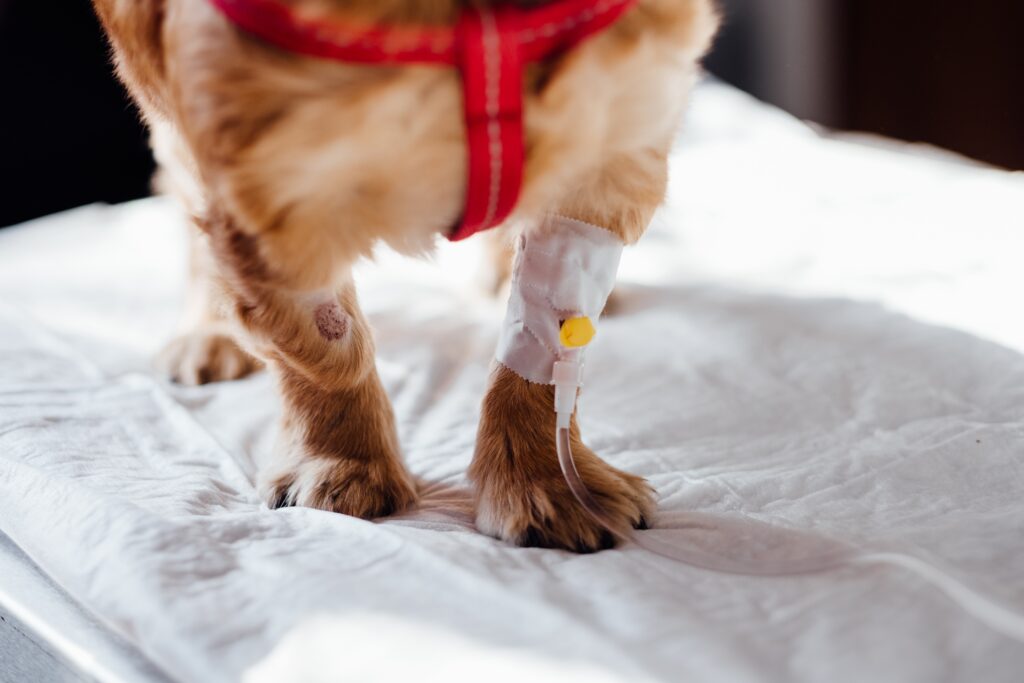
Exercises and Activities to Promote Strong Joints in Puppies
Benefits of Exercise for Puppy Joint Health
Exercise is essential for your puppy’s overall well-being and joint health. Regular physical activity can:
- Strengthen muscles, providing support for joints.
- Improve joint flexibility and range of motion.
- Maintain a healthy weight, reducing stress on joints.
- Promote proper growth and development.
By incorporating age-appropriate exercises, you’ll help keep your puppy’s joints healthy and strong.
Age-Appropriate Exercises for Puppies
It’s important to choose exercises that are suitable for your puppy’s age and development. Here are some age-appropriate activities:
- For young puppies (2-4 months): Gentle playtime, short walks, and socialization with other puppies.
- For older puppies (4-6 months): Gradually increase the length of walks, introduce fetch games, and continue socialization.
- For puppies over 6 months: Longer walks, off-leash playtime, and more advanced training exercises.
Always consult your veterinarian for guidance on appropriate exercise routines for your puppy.
Low-Impact Exercises to Support Joint Health
Low-impact exercises are ideal for promoting joint health in puppies. Some suitable options include:
- Swimming or hydrotherapy, which is gentle on joints and builds muscle strength.
- Short, controlled walks on soft surfaces like grass or sand.
- Interactive play with toys designed to encourage gentle movement, such as treat-dispensing toys or puzzle games.
By engaging your puppy in low-impact exercises, you’ll help protect their joints while keeping them active and entertained.

Tips for Safe Exercise and Play
Ensuring your puppy exercises safely is crucial for protecting their joint health. Follow these tips for safe playtime:
- Warm up and cool down: Just like humans, puppies can benefit from a brief warm-up and cool-down period before and after exercise to prevent injury.
- void repetitive activities: Repetitive jumping or running on hard surfaces can put excess strain on joints, so mix up your puppy’s activities to minimize wear and tear.
- Monitor playtime: Supervise your puppy’s interactions with other dogs to prevent rough play that could harm their joints.
- Know your puppy’s limits: Be mindful of your puppy’s energy levels and look for signs of fatigue or discomfort, stopping the activity if needed.
- By following these safety tips, you’ll help prevent joint injuries and ensure a happy, healthy exercise routine.
The Importance of Rest and Recovery
Rest is just as important as exercise for maintaining your puppy’s joint health. Consider these points:
- Puppies need more sleep than adult dogs to support their growth and development.
- Schedule rest days to give your puppy’s joints and muscles time to recover.
- Provide a comfortable and supportive sleeping area, such as a quality dog bed or orthopedic pad.
By prioritizing rest and recovery, you’ll help keep your puppy’s joints healthy in the long run.
Regularly Assess Your Puppy’s Exercise Routine
It’s crucial to continually evaluate your puppy’s exercise routine to ensure it remains suitable for their changing needs. As they grow and develop, their exercise requirements will also change. Remember to:
- Adjust activities based on your puppy’s age, breed, and fitness level.
- Monitor your puppy’s energy levels and overall health.
- Consult your veterinarian for guidance on adjusting your puppy’s exercise routine as needed.
Keeping a close eye on your puppy’s exercise regimen will help you support their joint health throughout their life.
H5: The Role of Genetics in Puppy Joint Health
While exercise plays a significant role in maintaining joint health, it’s essential to understand that genetics can also influence your puppy’s joint health. Some breeds are more prone to joint issues, such as hip dysplasia or elbow dysplasia. Consequently, you should:
- Research your puppy’s breed to understand potential joint health risks.
- Choose a reputable breeder who prioritizes health and follows responsible breeding practices.
- Be proactive about joint health care and work closely with your veterinarian.
Understanding your puppy’s genetic predisposition to joint issues will help you take the necessary steps to support their joint health.
The Connection Between Exercise and Puppy Joint Health
In conclusion, exercise is a vital aspect of promoting strong, healthy joints in puppies. To support your puppy’s joint health:
- Choose age-appropriate exercises and activities.
- Engage in low-impact exercises that are gentle on joints.
- Prioritize safety during playtime and exercise.
- Allow ample time for rest and recovery.
- Regularly assess and adjust your puppy’s exercise routine.
By actively supporting your puppy’s joint health through exercise and activity, you’ll contribute to their overall well-being and set the foundation for a happy, healthy life.

Preventative Measures to Safeguard Your Puppy’s Joint Health
Establishing a Healthy Environment for Puppy Joint Health
To safeguard your puppy’s joint health, it’s crucial to create a supportive environment. Before you start, consider the following:
- Opt for non-slip flooring to prevent injuries.
- Provide comfortable bedding to support growing joints.
- Use ramps or stairs to limit jumping onto high surfaces.
In essence, setting up a safe space will go a long way in preserving your puppy’s joint health.
Regular Veterinarian Check-ups
Regular veterinary visits are vital in keeping your puppy’s joints healthy. With routine check-ups, you can:
- Detect joint issues early.
- Receive expert advice on preventative measures.
- Monitor your puppy’s overall health and development.
Ultimately, working closely with your vet is essential in protecting your puppy’s joint health.
The Role of Nutrition in Preventing Joint Issues
Proper nutrition is a significant factor in maintaining healthy joints. To ensure optimal nutrition:
- Choose a high-quality, age-appropriate diet.
- Avoid overfeeding, as excessive weight strains joints.
- Discuss supplementation with your veterinarian.
Remember, proper nutrition supports not only joint health but overall well-being.

Avoiding Overexertion and Injuries
Being mindful of your puppy’s exercise routine can prevent joint injuries. To minimize risks, you should:
- Avoid excessive jumping or high-impact activities.
- Provide rest periods between play sessions.
- Supervise your puppy during playtime.
By being cautious, you’ll contribute to your puppy’s long-term joint health.
Early Training and Socialization
Proper training and socialization can promote healthy joints. To reap the benefits:
- Teach your puppy good manners, preventing sudden movements or aggressive behavior.
- Expose them to various situations, building confidence and reducing stress-related joint issues.
- Use positive reinforcement techniques to encourage good behavior.
Remember, a well-trained and socialized puppy is less likely to develop joint problems.
Maintaining a Healthy Weight
A healthy weight is crucial for your puppy’s joint health. To keep your puppy’s weight in check:
- Monitor their food intake.
- Adjust feeding portions based on activity levels.
- Provide regular exercise.
A healthy weight reduces the risk of joint issues, ensuring your puppy’s long-term well-being.
Regular Exercise and Joint-Friendly Activities
Exercise is essential for joint health, but it’s important to choose the right activities. Opt for joint-friendly exercises like:
- Walking or hiking on soft surfaces.
- Swimming or hydrotherapy.
- Play sessions that encourage gentle movements.
These activities strengthen joints while minimizing the risk of injury.
Seeking Expert Advice on Preventative Measures
Finally, never hesitate to consult experts on preventative measures for your puppy’s joint health. By doing so, you can:
- Gain personalized advice based on your puppy’s breed and lifestyle.
- Stay informed about the latest advancements in joint care.
- Receive guidance on potential treatments or therapies.
Remember, your puppy’s joint health is crucial to their overall well-being, and expert advice can make a significant difference.

Treatment Options and Veterinary Care for Puppy Joint Issues
Identifying Joint Issues Early
Detecting joint issues early is crucial for effective treatment. To ensure timely intervention:
- Observe your puppy’s behavior and movements closely.
- Schedule regular veterinary check-ups.
- Report any concerns to your veterinarian promptly.
A proactive approach helps address joint issues before they worsen.
Veterinary Care and Diagnostic Tools
Veterinary care plays a vital role in treating joint issues. Veterinarians use various diagnostic tools:
- Physical examination
- X-rays
- Ultrasound
- CT scans or MRI
These methods help identify underlying joint problems and determine the best course of treatment.
Medications for Puppy Joint Health
Medications can help alleviate pain and inflammation. Common medications include:
- Nonsteroidal anti-inflammatory drugs (NSAIDs)
- Corticosteroids
- Joint supplements (glucosamine and chondroitin)
Always consult your veterinarian before administering any medication to your puppy.
Physical Therapy and Rehabilitation
Physical therapy and rehabilitation can improve joint function and mobility. Some beneficial therapies include:
- Massage
- Passive range of motion exercises
- Hydrotherapy
A professional rehabilitation therapist can guide you through safe and effective exercises.

Alternative Therapies for Joint Issues
Alternative therapies can complement traditional treatments. Some options include:
- Acupuncture
- Cold laser therapy
- Chiropractic care
Consult your veterinarian to determine if these therapies are suitable for your puppy.
Surgical Treatment Options
In severe cases, surgical intervention may be necessary. Surgical options include:
- Arthroscopy
- Joint replacement
- Tendon or ligament repair
Your veterinarian will discuss the risks and benefits of surgery based on your puppy’s specific condition and needs.
Ongoing Monitoring and Adjustments
Treatment plans often require ongoing monitoring and adjustments. To optimize your puppy’s joint health:
- Attend regular follow-up appointments with your veterinarian.
- Communicate any changes in your puppy’s condition.
- Adjust treatment plans as needed based on your veterinarian’s recommendations.
Consistent monitoring and communication ensure the best outcomes for your puppy’s joint health.
The Importance of Owner Education and Commitment
As a puppy owner, your commitment is essential to your pet’s joint health. To provide the best care:
- Learn about your puppy’s breed-specific joint issues.
- Understand the signs of joint problems.
- Stay informed about new treatment options and therapies.
By staying educated and committed, you can better support your puppy’s joint health and overall well-being.
Conclusion
In conclusion, puppy joint health is a vital aspect of your furry companion’s overall well-being. By understanding the importance of monitoring, recognizing common issues, and providing optimal nutrition, you can ensure your puppy stays happy and active.
Furthermore, incorporating joint-friendly exercises, preventative measures, and seeking timely veterinary care can make a world of difference in your puppy’s life. So, go on and give your puppy a belly rub for us, and remember, a healthy puppy is a happy puppy!